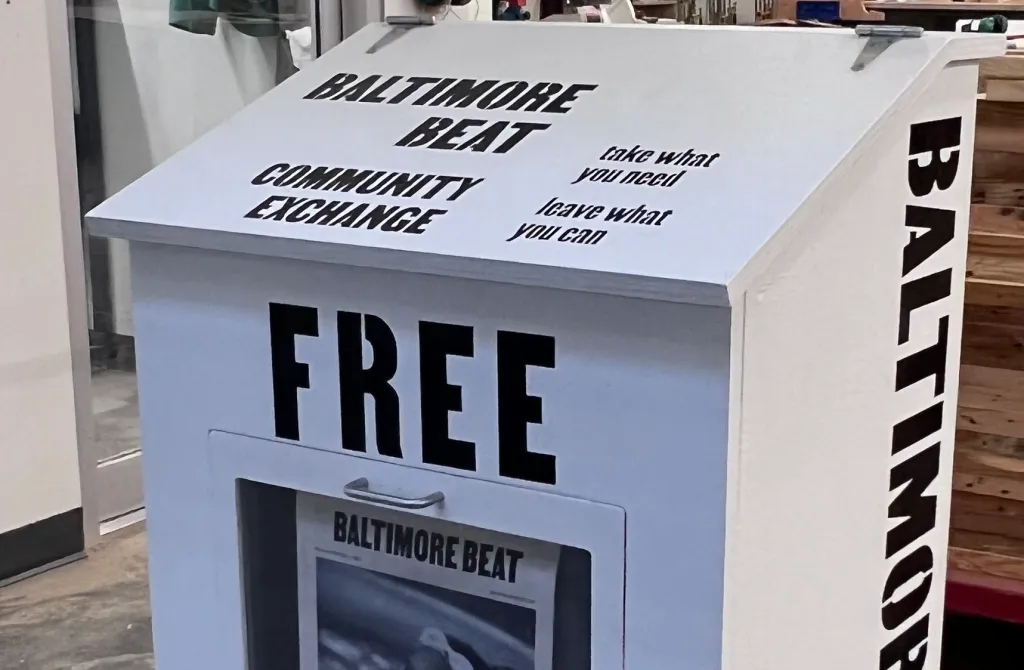News
Pivot Fund invests in Baltimore Beat
February 5, 2024

The Pivot Fund has invested $150,000 in Baltimore Beat, a Black-led, nonprofit alternative to the Baltimore Sun, which was purchased last month by the conservative chairman of Sinclair Broadcasting Group.
The investment underlines The Pivot Fund’s strategy of identifying local news outlets trusted by the communities they serve and equipping them to make real change. The financial support, paired with customized wrap-around support services, will allow the Beat to hire at least one more staff member, said cofounder and Editor-in-Chief Lisa Snowden.
“We want to grow steadily and slowly, so the community and the people we hire can count on us to be here for them,” Snowden said.
The Beat and the Baltimore Banner, a larger nonprofit digital outlet, both made fundraising appeals after the Jan. 15 purchase of the 186-year-old Sun by David D. Smith and fellow conservative Armstrong Williams raised concerns about partisanship. Under Smith’s leadership, Sinclair required its local TV news stations to run commentary favorable to President Donald Trump, even attacking other media.
Snowden co-founded the Beat in 2017 and received a first major investment, $1 million from the Lillian Holofcener Charitable Foundation, in 2022. Now, Democracy Fund and The Pivot Fund are also supporters. The Banner, by comparison, launched in 2022 with $50 million.
“It’s a pattern we’ve seen repeatedly. BIPOC-led publishers don’t get the same level of support as white founders,” said Tracie Powell, The Pivot Fund’s founder and CEO. “But publications like Baltimore Beat have the trust of the communities they serve, and that’s something money can’t buy.”
Baltimore, Powell reminded, is 64 percent Black.
Like most nonprofit news outlets, the Beat’s website access is free. It also publishes a bi-weekly print publication packed with resources for residents, in addition to event and entertainment listings in the alt-weekly tradition. It plays an important role in countering misinformation, which surges during election years and invariably targets communities of color.
The Pivot Fund vets grantees to ensure they do independent journalism but does not dictate how to use the money. Local publishers are the best placed to do that – they know their communities and the value of a dollar. The results from Pivot’s first cohort of grantees in 2022 have been striking.
In Savannah, Ga., Elizabeth Galarza used the Pivot Fund investment to hire the editor of a Spanish-language outlet in Charleston, SC, effectively merging the publications into Pasa la Voz Noticias. With an editor on staff, she was able to concentrate on revenue, and has brought in the equivalent of the Pivot grant through advertising, sponsorships and cultural events.
In La Grange, Ga., April Ross hired a sports director for her local TV station to attract both Black and white audience members in the racially divided city. When he concentrated on long-ignored girls’ sports, families flocked to the station and advertisers followed, generating revenue that will help fund more news reporting.
In addition to Baltimore, The Pivot Fund is expanding to the Midwest, conducting news landscape analyses in several states with the support of the Joyce and McKnight Foundations, founding members of the $500 million Press Forward local news initiative. The goal is to identify hyperlocal news outlets that are trusted by their communities – outlets like Baltimore Beat.